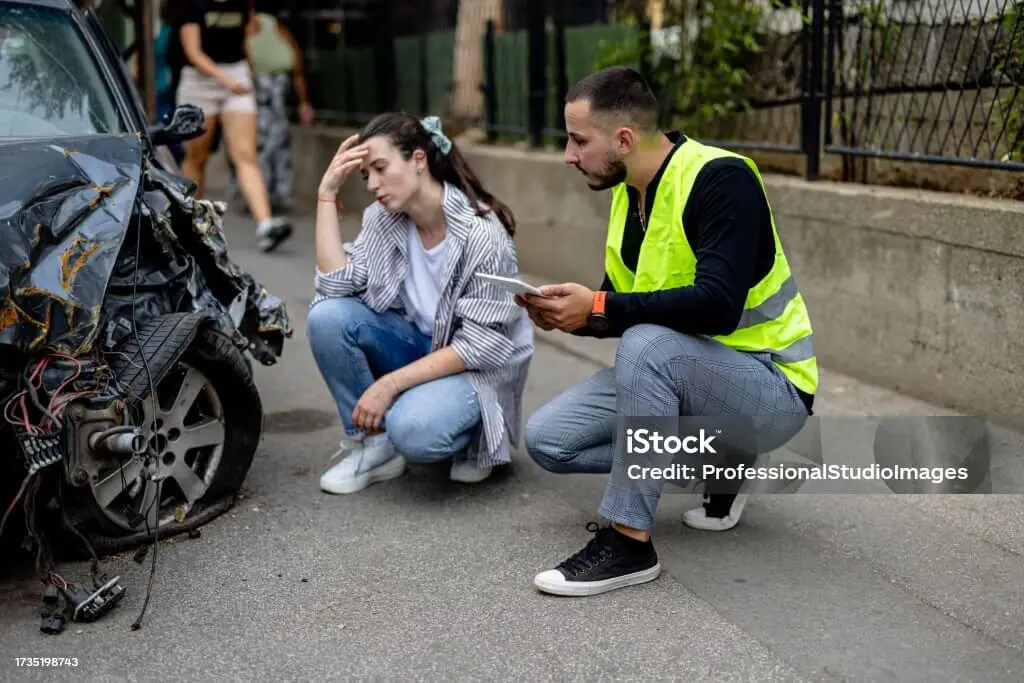Accidents can strike without warning, transforming lives in an instant. Yet, within the chaos and trauma, stories of resilience and survival emerge, highlighting the human spirit’s remarkable ability to endure and recover. These accounts not only serve as powerful testimonies of courage but also provide valuable insights into the healing process. Here, we explore the journeys of several accident survivors and the lessons learned from their experiences.

A Brush with Fate: Emily’s Story
Emily was a 28-year-old teacher enjoying a weekend hike in the mountains when a sudden rockslide changed everything. She was struck and knocked unconscious, suffering multiple fractures and a severe concussion. After being airlifted to the hospital, Emily faced a long road to recovery, marked by physical therapy and emotional challenges.
Throughout her journey, Emily found strength in her support network. Friends and family rallied around her, providing not just physical assistance but also emotional encouragement. She learned to celebrate small victories—like taking her first steps again—realizing that resilience often comes from recognizing and appreciating progress, no matter how incremental.
Emily’s experience taught her the importance of vulnerability and seeking help. Today, she advocates for outdoor safety and shares her story to inspire others to take precautions while enjoying nature, emphasizing that being prepared can save lives.
Rebuilding Life: Mark’s Journey
Mark, a construction worker, faced a life-altering accident when he fell from a scaffolding while on the job. The fall resulted in severe injuries, including a spinal cord injury that left him paraplegic. In the wake of his accident, Mark was faced with a daunting new reality.
Initially overwhelmed by the challenges of adapting to life in a wheelchair, Mark struggled with feelings of anger and loss. However, through rehabilitation and the support of fellow survivors, he began to embrace his new circumstances. He discovered adaptive sports and found a community that uplifted and motivated him.
Today, Mark is an advocate for accessibility and inclusivity in sports and public spaces. He emphasizes the importance of mental health support for survivors, encouraging others to seek help and connect with those who have shared similar experiences. His journey is a testament to the power of perseverance and the ability to find purpose in the aftermath of adversity.
A Second Chance: Sarah’s Transformation
Sarah was involved in a devastating car accident that claimed the life of her friend and left her with critical injuries. The trauma of the incident, coupled with survivor’s guilt, created a heavy emotional burden. Struggling to cope with the loss, Sarah found herself in a dark place, grappling with depression and anxiety.
In the months that followed, Sarah sought therapy and engaged in support groups for accident survivors. Through these sessions, she learned to express her grief and understand that healing is not a linear process. Gradually, she discovered healthy coping mechanisms, such as journaling and mindfulness practices, which helped her regain a sense of control over her life.
Sarah’s experience inspired her to become a mental health advocate. She now shares her story to raise awareness about the psychological impacts of accidents and the importance of seeking help. Her journey highlights the need for compassion and understanding, both for survivors and for those around them.
Lessons Learned
The stories of Emily, Mark, and Sarah illuminate key lessons for both survivors and their loved ones:
- The Importance of Support: A strong support network can be invaluable in recovery. Friends, family, and community members play a critical role in helping survivors navigate the challenges of healing.
- Embracing Vulnerability: It’s okay to ask for help. Acknowledging vulnerability can lead to deeper connections and a stronger foundation for recovery.
- Finding Purpose: Many survivors discover a new sense of purpose in advocating for safety, mental health, or accessibility. Transforming personal experiences into a mission can provide motivation and healing.
- Prioritizing Mental Health: The emotional aftermath of an accident is profound. Seeking professional help and engaging in self-care practices is essential for long-term recovery.
- Celebrating Progress: Recovery is often a slow process filled with setbacks. Recognizing and celebrating small achievements can help maintain a positive outlook and motivate continued efforts.
Conclusion
Accident survivors embody resilience and strength, demonstrating that even in the face of adversity, it is possible to rebuild and find meaning in life. Their stories remind us of the fragility of life and the importance of preparedness, support, and mental health awareness. By sharing these narratives, we not only honor the journeys of those who have endured but also inspire others to confront their challenges with hope and courage. In the end, survival is not just about enduring the unexpected; it’s about thriving in its aftermath.
